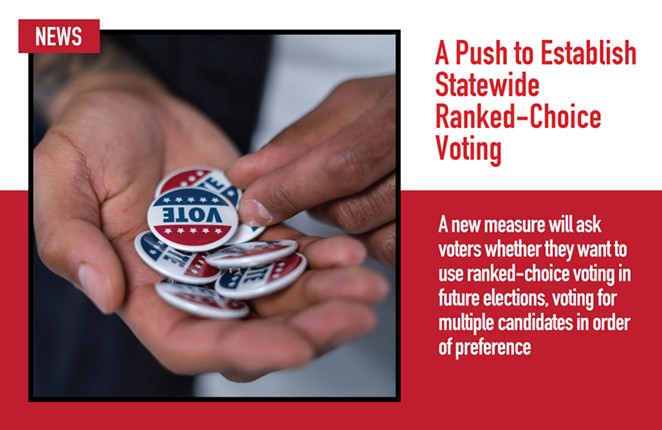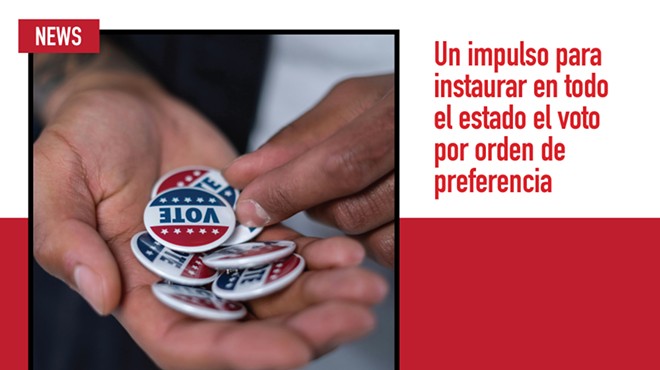Oregon voters will soon have the choice to adopt a new method of voting in elections. Ranked-choice voting, a system that allows voters to rank candidates in order of preference, will appear on the ballot this November.
If approved by voters, the measure would establish RCV for elections to federal and state offices and authorize cities, counties, school districts and other local governments and districts to use RCV for local elections, if those entities so desire. The measure would take effect on Jan. 1, 2028, if passed.
Unlike the current plurality voting system, in which people vote for one person and the candidate with the most votes wins, RCV lets voters rank candidates. With RCV, if a candidate receives more than half of the first-preference votes, that candidate wins. If not, the lowest ranked candidate is defeated, and ballots are counted for the voter's next choice until there's a majority winner.
According to Sol Mora, the political director with Oregon Ranked-Choice Voting Advocates and the HB 2004 coalition lead, the system has many benefits for both voters and candidates. RCV gives people more freedom to vote for candidates they are aligned with, said Mora, leading to increased voter satisfaction.
When voters are casting their ballots, seeing that they have limited choices, they often feel obligated to vote for the candidates with a higher chance of winning. "That simply does not evoke any excitement to really cast your ballot," said Mora. "With a ranked-choice voting system, what we're doing is empowering voters."
If a voter's first choice didn't get selected, their ballot can still count for their second- or even third-choice ranking. "Voters often feel like it's a choice between two evils," said Jim Moore, an associate professor at Pacific University and a political analyst who spoke about election reform at a City Club of Central Oregon event on Feb. 15. "It gives voters a better way to connect and feel that their voice is heard when they are not absolutely certain about who they support."
According to Mora, RCV can impact candidates too, allowing them to enter a race without feeling like they could be taking votes away from a similar candidate, leading to more choices in the voting pool.
"Ranked-choice voting is part of a nationwide trend to re-examine voting procedures," Moore told the Source Weekly. "It's become a very partisan thing here in 2024."
Some individuals and groups oppose the system. Last year, the Republican National Committee urged Congress and the states to oppose RCV. In January, a West Virginia senator introduced Senate Bill 593, attempting to prohibit RCV in any election held in that state. In February, Oklahoma lawmakers introduced House Bill 3156, which would ban RCV if approved.
Among the arguments from those in opposition, the Republican National Committee noted the need for educating voters, as the system would be confusing.
According to Mora, Oregon HB 2004, the bill that introduced the ballot measure into the Oregon State legislature, mandates a holistic voter education program. "We have data that really shows us that as long as you really are taking the time to educate people about this, they can understand it," said Mora.
"I think with any new voting system, there is a lot of fear behind it. The thing about ranked-choice voting is that it really is not here to benefit one party over the other. It's here to reflect the electorate ideologies," said Mora.
The effort to put RCV on the ballot has been in effect since about 2016, said Mora, when it was approved in Benton County for local elections. Today, the City of Corvallis is using RCV and voters in the City of Portland and Multnomah County have passed RCV. City-wide the use of RCV will begin in 2024 and for Multnomah County, in 2026.
"As I go out and talk to community members and different organizations, the one thing that continues to resonate with different types of people is that their communities, whether it be people of color, young people or working-class people, they simply don't feel like they are receiving as much representation as they could in a different system," said Mora. "We want to ensure that our democracy is reflective of our voices."
























